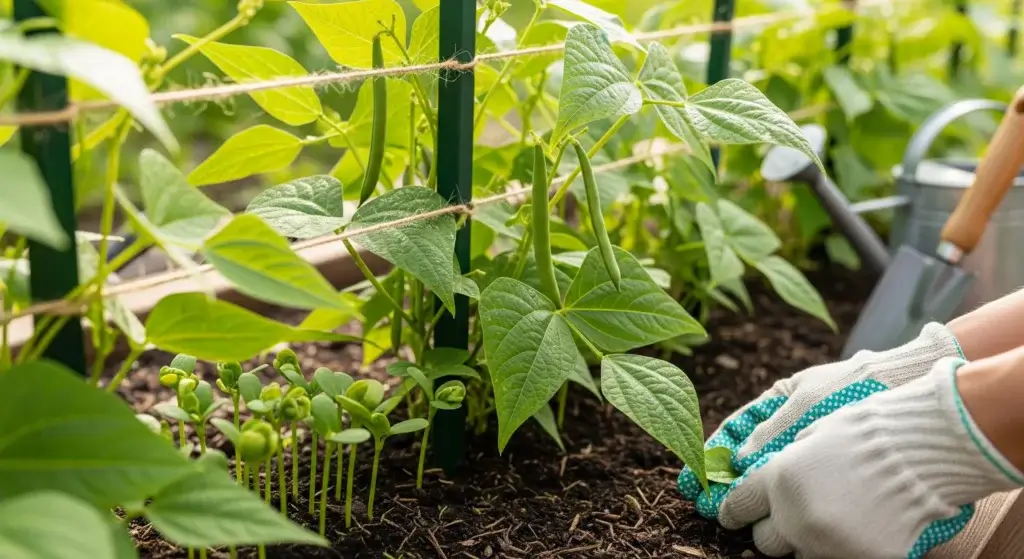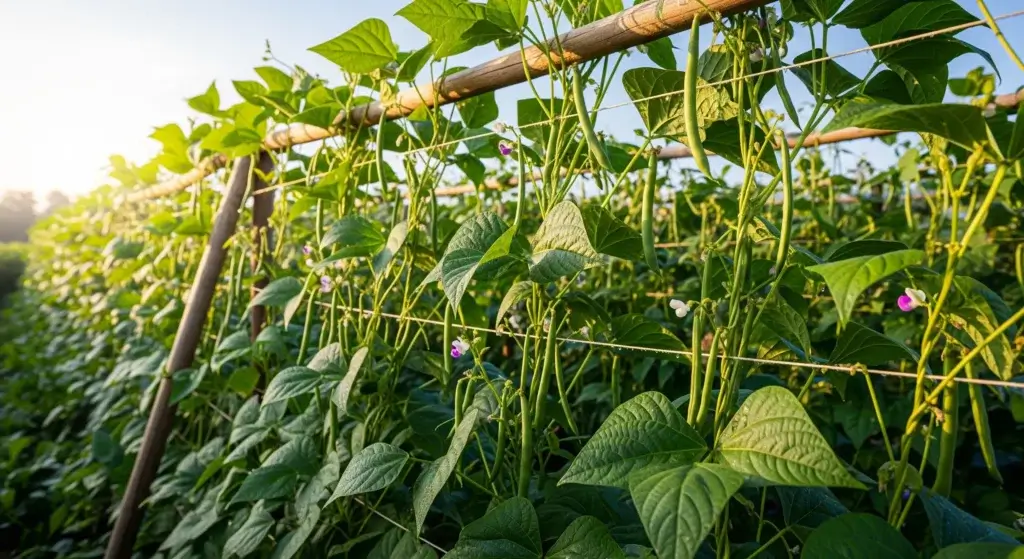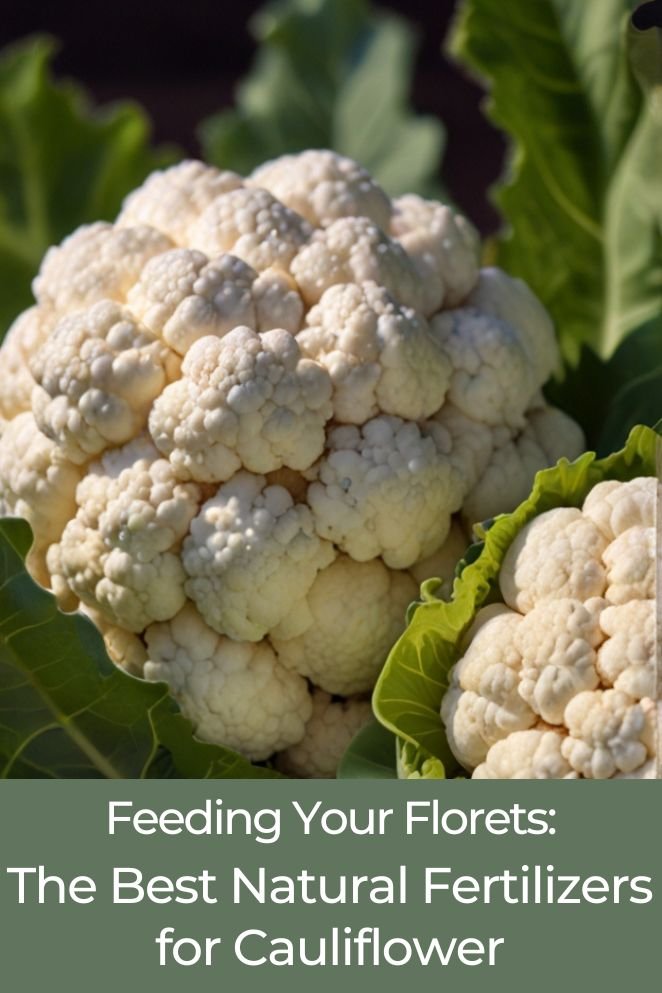
Love cauliflower? Who doesn’t!
This veggie is a nutritional powerhouse, but it needs a little TLC to reach its full potential.
The secret to a bountiful harvest lies in feeding your plants the right nutrients.
But ditch the harsh chemicals – Mother Nature has plenty of amazing options!
Today, we’ll explore six fantastic natural fertilizers that will keep your cauliflower thriving.
6 Best Natural Fertilizers for Cauliflower
When it comes to growing healthy and thriving cauliflower plants, choosing the right natural fertilizers can make a significant difference.
Here are six of the best options to consider:
- Read also: A Comprehensive Guide: Inorganic vs Organic Fertilizers
- Read also: Tips and Tricks: A Guide to Watering Your Cauliflower Plants
Compost
Compost is a blend of organic matter that is rich in nutrients and beneficial microorganisms.
When added to the soil, compost improves soil structure, enhances moisture retention, and provides a steady supply of essential nutrients for cauliflower plants.
Additionally, compost helps suppress diseases and pests, promoting overall plant health and vigor.
Manure
Organic manure, such as cow or horse manure, is an excellent source of nutrients for cauliflower.
It contains essential elements like nitrogen, phosphorus, and potassium, which are vital for plant growth.
Manure also helps improve soil structure, aeration, and drainage, creating an optimal environment for cauliflower roots to thrive and develop.
Fish emulsion
Fish emulsion is a liquid fertilizer made from fish byproducts. It is high in nitrogen, which is crucial for promoting leafy green growth in cauliflower plants.
Additionally, fish emulsion provides other essential nutrients like phosphorus and potassium, supporting overall plant health and development.
It is easy to apply and quickly absorbed by plants, making it an efficient choice for boosting cauliflower growth.
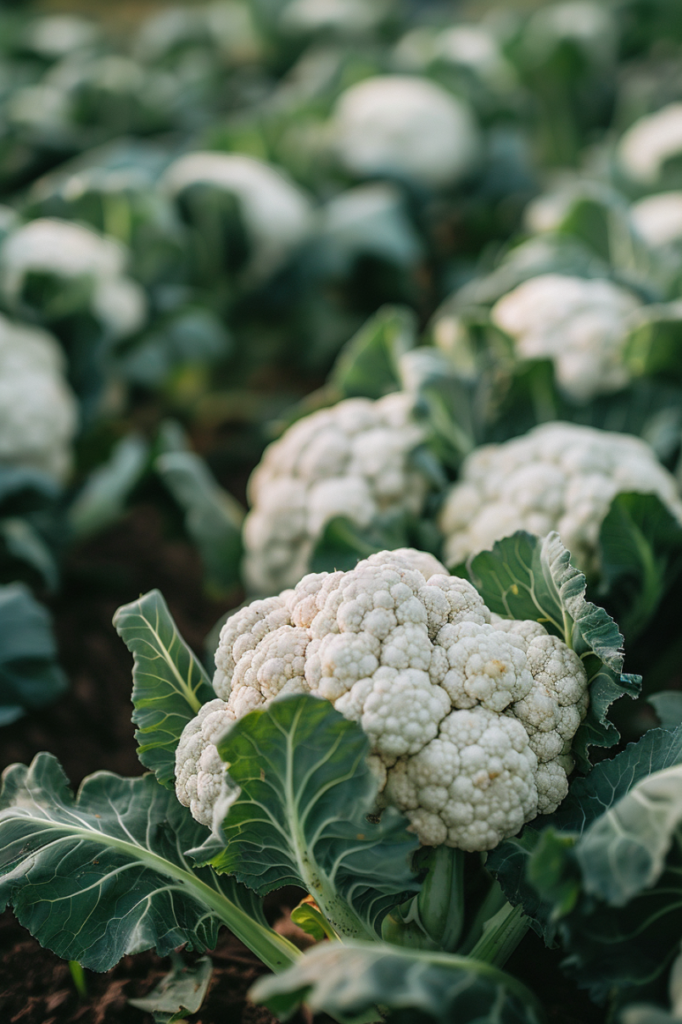
Blood meal
Blood meal is a slow-release fertilizer derived from dried animal blood.
It is rich in nitrogen and phosphorus, two nutrients that are essential for healthy cauliflower growth and development.
Blood meal gradually breaks down in the soil, providing a sustained supply of nutrients to plants over time.
It also helps improve soil fertility and structure, promoting robust cauliflower plants with strong stems and abundant foliage.
Coffee grounds
Coffee grounds are a readily available and sustainable source of nitrogen, making them an excellent natural fertilizer for cauliflower.
When applied to the soil, coffee grounds slowly release nitrogen as they decompose, providing a steady source of nutrients for plant growth.
Additionally, coffee grounds help improve soil texture, enhance water retention, and attract beneficial earthworms and microorganisms, creating a healthy growing environment for cauliflower plants.
Seaweed extract
Seaweed extract is rich in micronutrients, trace elements, and beneficial plant hormones that promote healthy growth and development in cauliflower plants.
It improves soil structure, enhances nutrient uptake, and stimulates root growth, resulting in stronger, more resilient plants.
Seaweed extract also helps plants withstand environmental stressors like drought, pests, and diseases, ensuring optimal cauliflower yields.
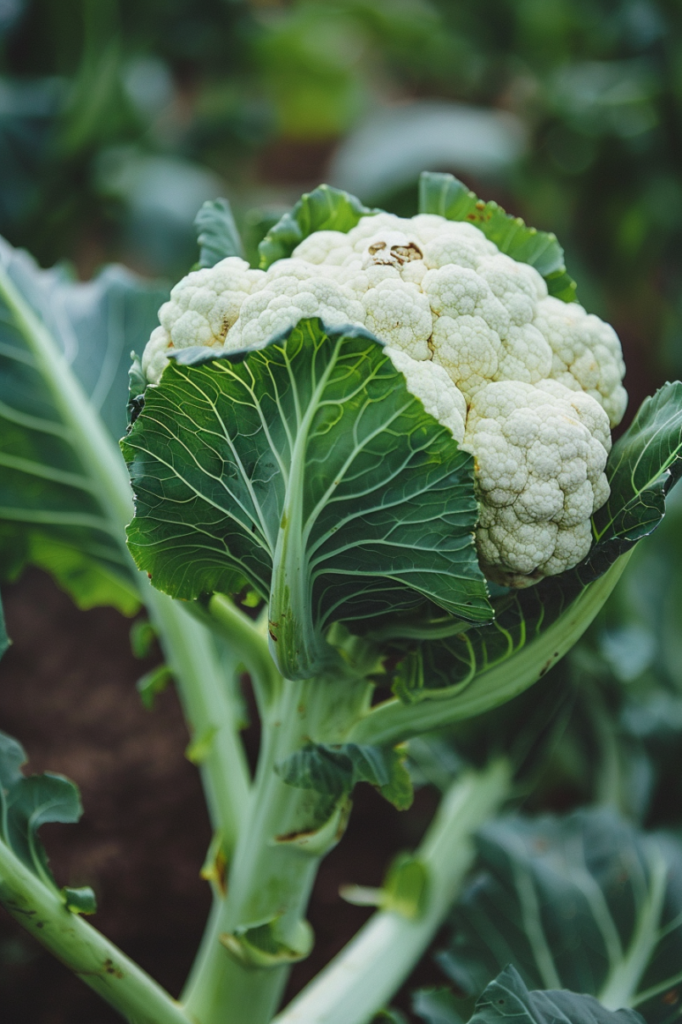
How to Use Natural Fertilizers for Cauliflower
Cauliflower, like many other vegetables, can benefit greatly from the use of natural fertilizers to support its growth and development.
Here’s a detailed guide on how to effectively use natural fertilizers for cauliflower cultivation:
Amending the soil
Before planting cauliflower, it’s crucial to prepare the soil by incorporating natural fertilizers.
This step helps create a nutrient-rich environment that supports healthy plant growth.
Organic matter such as compost, well-rotted manure, or aged chicken or cow dung can be mixed into the soil to provide essential nutrients like nitrogen, phosphorus, and potassium.
Side dressing
Once the cauliflower plants have established themselves and started to grow, it’s beneficial to provide additional nutrients through side dressing.
Side dressing involves applying natural fertilizers such as compost or aged manure around the base of the plants, ensuring that the nutrients are readily available to the roots for uptake.
Foliar feeding
In addition to amending the soil and side dressing, foliar feeding can be used as a supplemental method to provide nutrients directly to the cauliflower plants.
Natural fertilizers, such as fish emulsion or seaweed extract, can be diluted in water and sprayed onto the leaves of the plants.
This method allows for quick absorption of nutrients through the foliage, providing a boost to plant growth and overall health.
Moderation
While natural fertilizers are beneficial for cauliflower growth, it’s essential to use them in moderation.
Over-fertilization can lead to excessive vegetative growth at the expense of flower development, resulting in reduced quality of the cauliflower heads.
It’s important to follow recommended application rates and avoid applying fertilizers too frequently.
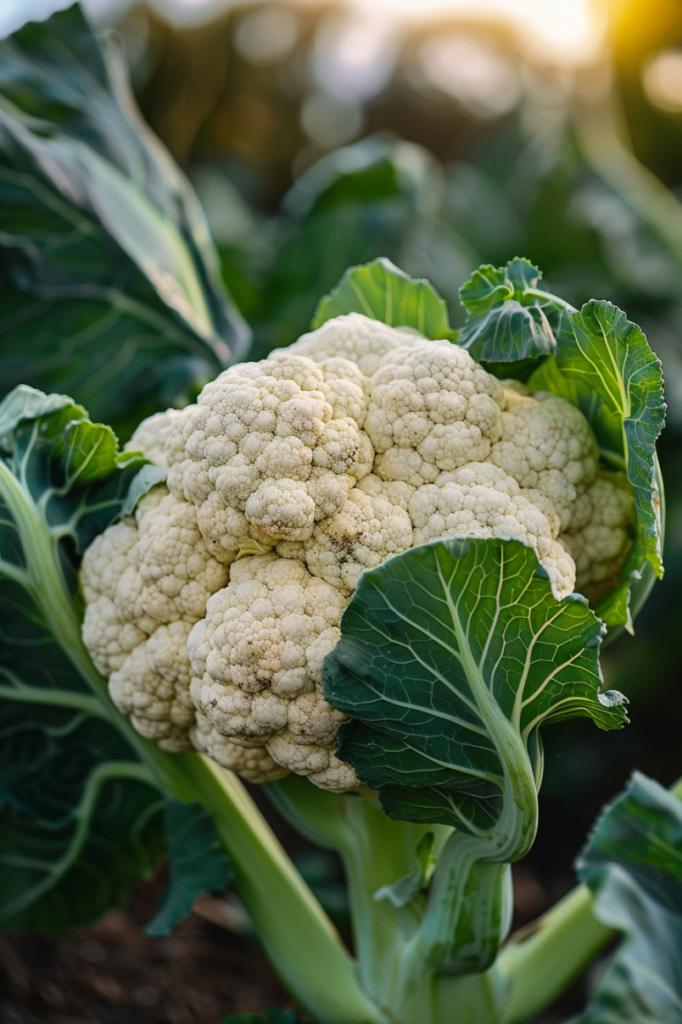
Benefits of Using Natural Fertilizers For Cauliflower
Benefits of Using Natural Fertilizers for Cauliflower:
- Promotes healthy growth: Natural fertilizers provide essential nutrients like nitrogen, phosphorus, and potassium, which are crucial for cauliflower growth and development.
- Improves soil structure: Organic fertilizers like manure and compost help improve soil structure, providing better drainage and aeration for cauliflower plants.
- Boosts crop yield: Using natural fertilizers can increase the yield of cauliflower crops, ensuring a more abundant harvest.
- Reduces environmental impact: Natural fertilizers are more environmentally friendly than synthetic fertilizers, as they do not contribute to soil degradation and water pollution.
- Supports beneficial microorganisms: Organic fertilizers support the growth of beneficial microorganisms in the soil, which can help improve nutrient availability and soil health.
- Minimizes waste: Using homemade organic fertilizers like worm castings and vegetable water can help reduce waste and promote sustainability in the garden.
- Provides micronutrients: Natural fertilizers like seaweed extract and blood meal can provide essential micronutrients that are vital for cauliflower growth.
- Reduces chemical exposure: By using natural fertilizers, gardeners can reduce their exposure to synthetic chemicals found in commercial fertilizers, promoting a healthier environment for both plants and humans.
Conclusion
Forget fancy chemicals! When it comes to growing big, beautiful cauliflower, nature has everything you need.
From kitchen scraps to fishy friends (don’t worry, not the smelly kind!), there’s a treasure trove of natural fertilizers waiting to give your cauliflower plants a healthy boost.
These power-packed options will provide all the essential nutrients your cauliflower craves, leading you to a bountiful harvest come picking time.
- Read also: Organic Pest Control For Cauliflower
- Read also: Unforgettable Foes: Mastering Common Cauliflower Pests
FAQs
Apply natural fertilizers according to the specific recommendations for each product, typically once or twice during the growing season.
While many natural fertilizers can be used for various vegetables, it’s essential to research the specific needs of each crop to ensure optimal growth.
Chemical fertilizers can provide quick results, but they may not be as beneficial for long-term soil health and plant growth as natural fertilizers.
Soil testing can help determine the nutrient levels in your soil and guide your decision on whether to amend with natural fertilizers.

